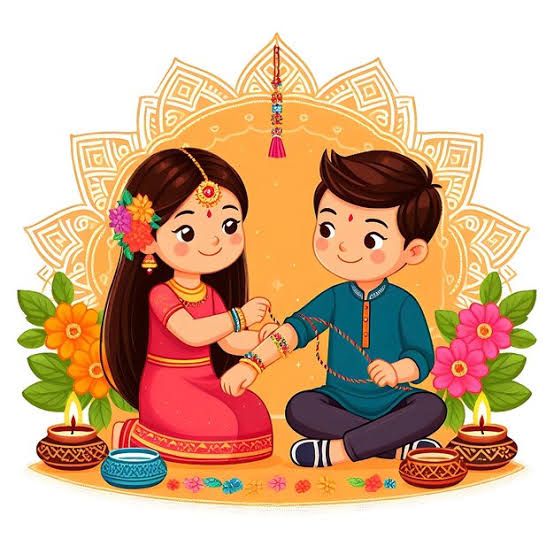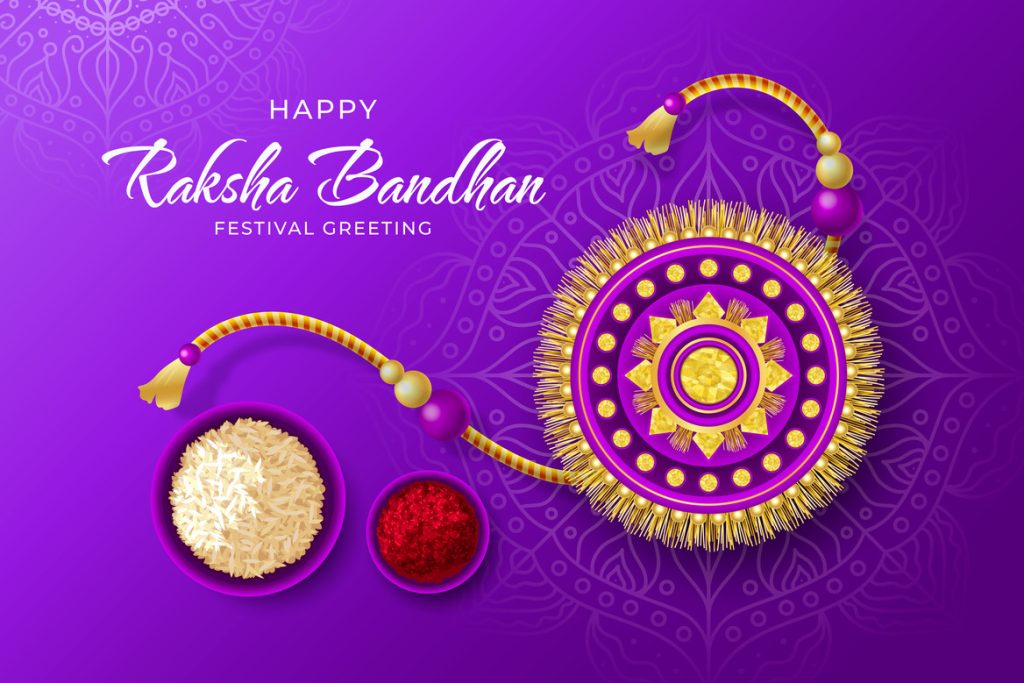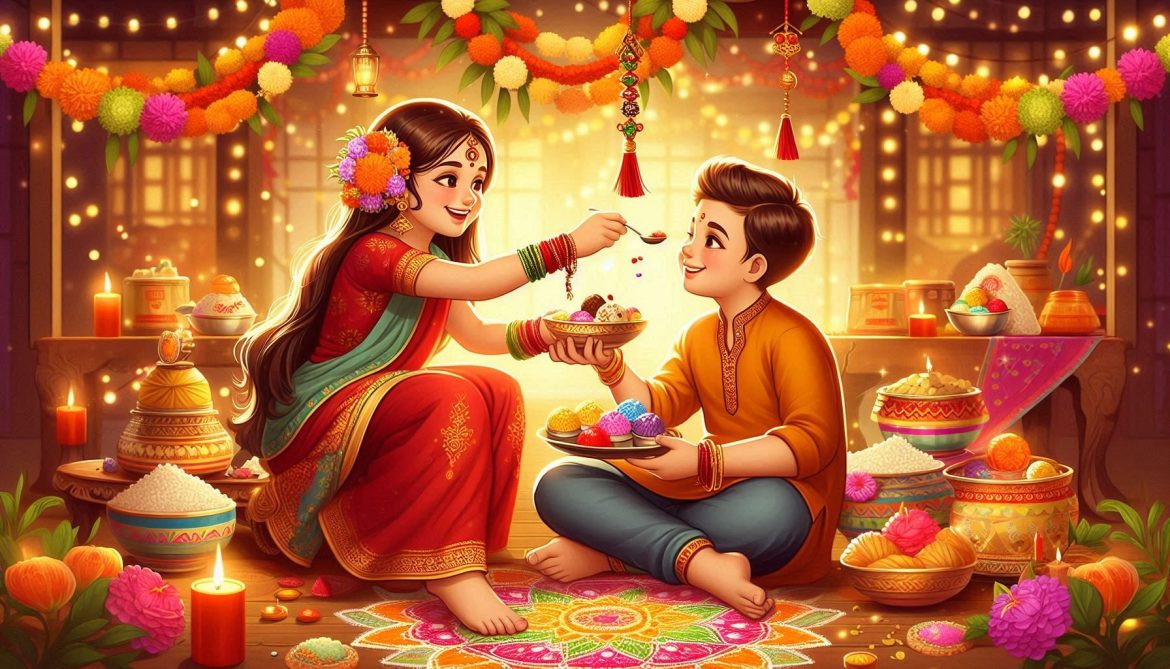Rakhi Festival Popular and traditional, Raksha Bandhan is an annual Hindu ritual or ceremonial that serves as the centerpiece of the festival of the same name observed throughout the Indian Subcontinent. It is also observed in other nations where Hindu culture has had a considerable influence. Sisters of all ages bind the rakhi, a talisman or charm, around their brothers’ wrists on this day. They give them a present in exchange, defend them symbolically, and customarily invest in the brothers by bearing some of the burdens of their possible care.
On the final day of the Hindu lunar calendar month of Shravana, which usually occurs in August, people celebrate Raksha Bandhan. These days, this ceremony is primarily referred to as “Raksha Bandhan” (Sanskrit, literally “the bond of protection, obligation, or care”). The phrase was more frequently used to refer to a related ceremony that took place on the same day and had its origins in ancient Hindu writings up to the middle of the 20th century. In that ceremony, a domestic priest takes gifts of money and ties charms, amulets, or threads on the wrists of his patrons. He also replaces their sacred thread. In certain locations, this is still the case. On the other hand, the titles of the sister-brother festival, which originated in folk culture, differed depending on the locality. (Rakhi Festival)
The Rakhi Festival
There are many festivals celebrated in the Hindu Culture. Raksha Bandhan is particularly significant to women after marriage. because it originates from the custom of exogamy, either territorial or village-wide. It is customary for the bride’s parents to visit her in her married house, but she marries outside of her birth town or village. Many married Hindu women return to their parents’ homes for the event each year in rural north India, where local exogamy is quite common. Usually living with their parents or close by, their brothers occasionally go to their sisters’ marital residences to provide an escort back. Many younger married ladies stay at their birth homes until the ceremony, arriving a few weeks early. The brothers act as possible guardians of their sisters’ safety as well as lifetime middlemen between their married and parental households.

Although more and more Indian families are nuclear, the event has taken on a symbolic meaning despite its continued popularity. Due to migration and technological advancements, the customs connected to this celebration have expanded beyond their original locales. Additional elements that have contributed include cinematic productions, interpersonal communication, and advocacy from the nation-state and politicized Hinduism. The act of tying rakhi amulets among men and women who are not biological relatives has given rise to the tradition of voluntary kin relations, which has occasionally transcended caste, class, and religious boundaries. In a ceremony like this, authority figures have been included. (Rakhi Festival)

Significance Of Rakhi Festival
One of the most popular holidays in India is Rakhi, also known as Raksha Bandhan. People across all castes and religions celebrate this auspicious day throughout the nation. Raksha Bandhan is a festival of protection. (Rakhi Festival)
People from all around the nation typically visit priests and temples to receive a secret connection. At the Kala Bhairava temple in Varanasi, there is a grand celebration, with people tying black thread around their wrists. On the occasion of Raksha Bandhan, individuals are reportedly seen wrapping a crimson band across their foreheads at the Vaishno Devi temple in Jammu and Kashmir.
Some traditions state that even Yagnopaveetam functions as a Raksha to its users if one upholds its holiness. In India, there is a misperception that Raksha Bandhan can only be celebrated between siblings. This idea is untrue, though, as a disciple can also tie a Rakhi to his teacher. A husband and wife can knot a Rakhi in each other’s hands. Whether or not two people are related by blood, tying a Rakhi. Holding hands is believed to strengthen the tie of love, respect, and protection between them. (Rakhi Festival)
Conclusion
The genuine meaning of Rakhi, also known as Raksha Bandhan, is respect, love, and protection. Rakhi is not only meant to be celebrated between siblings but also between spouses and wives. In India, Raksha Bandhan is observed annually. Considered to be one of the most fortunate days of the year. (Rakhi Festival)
If you are a maratha, looking for maratha bride or maratha grooms for marriage, we suggest you to click here.

